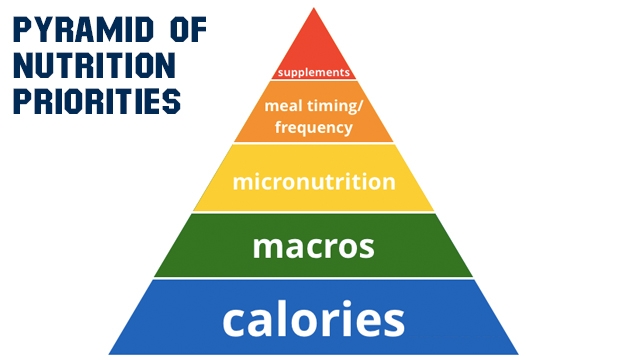What the hell is this?
I asked myself this question as I scrolled through the “25 symptoms of Fuckarounditis”.
It was October, 2011, and I was about 4 months into my “no-carb diet”. I adhered religiously to the “insulin hypothesis”, (incorrectly) believing that carbohydrates made you fat. Because blood sugar and Gary Taubes.
In the comment section of one of the “fat is good” websites, someone linked to a blog of this Swedish guy, Martin Berkhan. The person in the comments section was touting the benefits of “intermittent fasting” and its effect on fat loss.
I clicked on the link to the blog and began reading.
It was like dangling a worm in front of a starving baby bluegill.
I ate it up, hook, line, and sinker.
I began utilizing intermittent fasting and macronutrient counting.
I began training in a minimalist fashion, reverse pyramid-style.
I began cycling my calories and piling food into my “post-workout window”.
I immersed myself into “Leangains culture”, scouring the internet for any leaked documents, interviews, and insider information.
I joined the Leangains Facebook page, the Leangains Subreddit, and the Bodybuilding.com message boards.
I was in, baby – ALL in – Leangains or die.
This was nearly 5 years ago.
With the enormous popularity of fasting protocols, it’s natural to wonder if fasting is right for you.
If you are looking to lose fat, should you consider using “IF”?
If you’ve ever asked that question, this article is for you.
The Lure Of The “Quick Fix”
It’s easy to see why intermittent fasting has been tearing up the fitness world for the past decade or so.
It seems so easy: Don’t eat for a certain amount of time, and then eat whatever you wish.
You’ll lose fat, improve insulin sensitivity, and look like Hugh Jackman.

Fasting is “sexy”.
It’s simple, it’s “kitschy”, and when you see the awesome results it gives you (if utilized correctly), you begin to believe there’s something magical to its powers.
Full disclosure: I’ve fallen into this trap.
Once upon a fitness moon, I would find myself staring at the clock, hungry as hell, waiting until 11 am. My feeding window was 11-7, and I was burning “pure fat” during my fast.
I’ve felt anxiety before because friends wanted to dine out at 8 pm, and I would have to “shift my eating window” for the day.
I’ve gone on fishing trips with friends, and fasted until 11 instead of eating an awesome breakfast.
If a fitness coach “sells” fasting and ONLY intermittent fasting, there’s one reason for that:
Intermittent fasting makes money.
Intermittent fasting sells books (both print and ebooks), it gets website traffic (hence the topic of the article), and it gets YouTube views (especially if you rent a Lambo).
But is it superior for fat loss?
Once upon a time, I was an “intermittent fasting” guy – I gave mostly intermittent fasting diet set-ups to prospective clients.
These days, I’m not so convinced.
We still give fasting plans, but there are certain criteria which must be hit in order to recommend them.
What Are The Benefits Of Using An Intermittent Fasting Plan?
The theory behind the benefits of fasting have to do with your body’s primary source of fuel, carbohydrates.
After a large, carbohydrate-fueled meal, you begin your fasting window.
At this point, your body’s “respiratory exchange ratio (RER)” is 1.0 or higher. This means your body is using 100% carbohydrates as its energy source.
This number is measured by the characteristics of your exhalation and can only be done in a medical facility.
Over the next 16 hours, your body’s “RER” drops from ~1.0 all the way down to a low point of ~0.7. When your breath registers ~0.7, your body is burning 100% fat as its energy source.
This ~0.7 is often obtained during the last 4-5 hours of a 16-hour per day fasting plan such as Leangains.
Studies have been shown that periods of overfeeding followed by periods of underfeeding may be beneficial for fat loss.
The studies are [HERE], [HERE], [HERE], and [HERE] if you wish to check them out.
Many advocates of fasting claim there are anecdotal benefits as well.
Reports of improved focus, heightened senses, greater alertness and energy during the fast, and improved lipid panels are common.
So, there you have it, right? Time for everyone to start fasting! Let’s do this thing – all hail Martin Berkhan!
Not so fast – there’s a few things we need to clear up and make sure we understand before we hop firmly on the “Leangains Train”.
Should You Fast? Your Checklist.
There are clear and concise guidelines for what matters in your fat loss plan.
There are no “maybes”, “kindas”, or “sortas”.
When deciding on if we should fast or not, we need to keep in mind Eric Helms’ “Nutritional Hierarchy Of Importance for Fat Loss and Muscular Gain”.

As you can see from this visual, there is a “base” at the bottom which makes up the biggest portion of the pyramid.
As we move up the pyramid, the amount of importance designated to each level becomes less and and less.
Before we consider fasting, we need to be sure of a few items.
Item #1 ===> Are you in a calorie deficit?
If your calories aren’t in order, fat loss will not occur.
The fanciest diet in the universe won’t cause fat loss unless there’s a deficit present.
The reverse is true as well. You can have the crappiest, most god-awful, processed food laden diet on earth. If you control your calories, you’ll lose fat.
You’ll likely feel terrible, but hey, you’ll be skinny.
As a coach, it’s astonishing how many people miss this basic first step.
We get 10-15 emails per week from prospective clients. One of the questions we ask is “What is your current frustration with your fitness program?”
The most common response is:
I eat clean and healthy, but I can’t lose fat.
When we pry a bit and ask them how many calories per day they are eating, they have no clue.
Eating “clean” is nice, but if it doesn’t result in a calorie deficit, it will not cause fat loss.
And neither will fasting.
Get your deficit in check first, as no amount of fasting will negate a calorie surplus.
Item #2 ===> How are your macros? Are you getting enough protein, carbohydrates, and fats?
Protein needs to be present to emphasize muscular building and/or retention when dieting.
Protein is also filling and has a high Thermic Effect of Food. This means it is difficult to digest and your body uses some of protein’s energy in the break-down process.
You need carbohydrates to fuel performance and recovery. Low-carbing can cause hormonal imbalances and metabolic shut down if taken to extremes.
You need fats for optimal hormonal profiles, namely testosterone production. Plus, fat is filling and tastes amazing.
Assuming your deficit is in place, next take a close look at your macronutrients, as it will provide you the biggest bang for your buck.
If you’re interested in different macronutrient set-ups to fit your lifestyle, refer to this article for help.
Item #3 ===> What food types are you eating? Are you getting enough vitamins, minerals, fiber, and water?
In short, the third level of the pyramid is all about food quality.
This is where you make sure you’re eating your fibrous veggies, your lean proteins, your “healthy fats”, and you’re staying hydrated.

This is also where many “miss the forest for the trees” when it comes to dieting for fat loss.
Notice that “food quality” and “healthy eating” are #3 on the list of “importance for fat loss”.
Many people associate celery stalks, kale, and chicken breast with “diets”. While those items can (obviously) be on a sample “diet menu”, they aren’t a requirement. No foods are absolute requirements for fat loss.
Since “fat is good” and “carbs are bad” (or so the story goes), you have loads of people slathering their grass-fed beef with organic butter and a side order of avocados and extra virgin olive oil. All of that fat adds up to a boatload of calories.
It’s easy to see why so many “clean eaters” are frustrated that the scale isn’t budging.
***Side note – you may also be looking at the wrong parameters. For proper fat loss parameters, check out this article. Spoiler alert – the scale is a terrible judge of fat-loss.
As you can see, there are 3 items – calories, macros, and food quality, that are more important than your meal timing and frequency (which is what “fasting” would be considered.)
If you can’t get those items in order, your time, energy, and efforts will be better spent elsewhere.
Now, I’m going to go out on a limb here……………………some of you are thinking………………..
“Jason, I NAILED Those 3 Items. I Should Fast, Right?”
Easy there, tiger.
We have a few more items to discuss.
Even if you’ve got your ducks lined up to this point, there are some common misconceptions about meal timing and frequency we should address.
There are a few ways this step can be taken out of context incorrectly.
Here are a few “meal timing/frequency” myths which are currently still floating around in the world of dieting:
- Thinking you can’t eat carbs past a certain time of the day.
- Thinking breakfast is “the most important meal of the day”.
- Thinking you should eat “6 meals per day” to “stoke the metabolic fire”.
- Thinking that one, large meal will cause you fat gain.
- Thinking that fasting will cause fat loss.
These above items – in isolation – will not make or break a diet.
Your calories (Step 1) and macros (Step 2) constitute ~85% of your diet. Nail these two and you’ll be just fine.
If you can manage to eat your veggies and stay hydrated on top of that (Step 3), you’re doing better than most everyone.
At the same time, eating less frequently allows your meals to be bigger. You can eat more calories at each meal this way.
Many have found this to be beneficial. Eating big meals is psychologically satisfying.
Eating small meals all day long makes you feel like you’re nibbling at itty-bitty portions.
Utilizing fasting – eating only lunch and dinner, or even only dinner – has proven an effective means for losing weight and keeping it off for many.
That being said, here is my current stance on the matter.
- If you are a beginning dieter, are a male, and have significant weight to lose, fasting is an excellent “starter’s template” for macro counting.
- It’s rather easy to plan and execute 2 meals. The fasting makes things simple – just lunch and dinner and you’re set.
- If you are nearing middle age (or older) and male, and you have no stress or sleeping issues, proceed with caution.
- Fasting is a stressor – listen carefully to your body. If you can’t sleep or are having anxiety/stress problems, it’s wise to eliminate it.
- If you are female, fasting isn’t advised – a 3-meal format seems to work much better.
- Metabolic issues sometimes accompany fasting with females. Eat a small breakfast.
- We do not recommend fasting to females any longer.
- If you have no problems macro counting or with hunger, eating a small breakfast seems to be your best bet, male or female, regardless of your training history.
No matter how many meals per day you eat, it’s always good to eat roughly the same sized meal at roughly the same times.
Your body will get used to eating at these times and in these amounts, and you will be less hungry during your times of “not eating”.
Don’t be overly concerned with the dangers of “not eating” for a few hours. Most studies show you have a good 72 hours before metabolic slow down begins to occur.
So, should you fast?
Here’s your condensed checklist:
- Are you a male?
- Are you under 40?
- Are you sleeping well without any stress issues?
- Are you in a calorie deficit?
- Are you eating enough protein, carbs, and fats?
- Are you emphasizing whole foods and getting your veggies?
- Are you staying hydrated?
- Are you compliant and consistent with your diet?
If you answered “yes” to every single one of those questions, you are a prime fasting candidate.
If you answered “no” to any of them, you should have reservations about fasting protocols.
If fasting will greatly improve your compliance and consistency, and you have lots of weight to lose, it may be worth the cost-benefit.
But that will be up to you to perform your own self-experimentation to see if that’s the case.
What About You, Jason? Do You Still Fast?
Excellent question!
I actually gave it up about a year ago, myself.
Why did I give it up?
I was getting older, I’m nearing my mid-30’s, and dietary compliance was no longer an issue.
I knew how to nail my macros consistently, I was training religiously, and I emphasized whole, nutritious foods in my diet.
My biggest health concern wasn’t diet, training, excess body fat, or anything resembling those items.
My biggest health concern was stress and anxiety.

My sleep quality wasn’t optimal, and I was having issues staying calm and relaxed.
Fasting sometimes causes issues in this area, as fasting is a stressor in-and-of itself.
As with anything else, there is a diminishing rate of returns when it comes to the benefits of fasting.
Can it help you keep your calories in check?
Can it help you count your macros easier?
Can it help with compliance and hunger?
Can it simplify living a “fitness lifestyle”?
Yes, it can.
But once you have those items mastered, you may find it beneficial to move to a more “normalized” way of eating.
Yours in true health,
Jason
